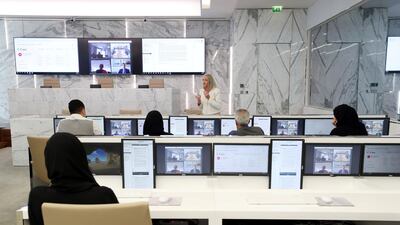Since the launch of ADGM in 2013, Abu Dhabi has moved up in a ranking of competitiveness for major global financial centres from number 39 to 26, according to the Global Financial Centres Index.
Paris, by comparison, is number 27.
There are many good reasons for this, not least the highly attractive legal regime that applies in ADGM. The top four financial centres in the world rely on the common law, a system ADGM embraced upon its establishment in 2013. This was a visionary step for a start-up financial centre, enabling it to mature into its current position with over 10,000 people operating within it, along with over 1,200 businesses.
However, embracing the common law system was not the only daring step taken. ADGM and the Financial Services Regulatory Authority (FSRA), its regulator, have also subjected themselves to a level of oversight rarely matched even in longstanding jurisdictions. This occurs through "administrative law", a system subject to the ordinary jurisdiction of the courts, applying the same procedures and rules of evidence as for any other dispute.
Officials are not institutionally advantaged by such a system, they are simply treated like any defendant. By contrast, in many civil law systems, administrative law issues fall under the jurisdiction of special tribunals, with their own rules and sometimes even a separate supreme court. In a regional context, a robust administrative law route to challenge decisions of officials is not a given, as the concept simply does not exist in many states. To have one as sophisticated as that established in ADGM is a significant step.
Under this system, judges are the final arbiters of the fairness and legality of decision-making by ADGM's officials. Equally significant, the FSRA is overseen by a Regulatory Committee and an Appeals Panel to ensure that its decisions observe due process and procedural fairness. These bodies comprise distinguished and highly respected lawyers and international market practitioners, who will consider any complaints by financial firms about how the regulations are applied to them. Members of the Committee and Panel are independent of ADGM and they have, or had, successful self-standing careers elsewhere in the world, owing no particular allegiance to ADGM or any firms within ADGM. They are subject to their own conflict of interest rules.
This approach signifies extensive but warranted confidence in ADGM's and FSRA's officials, as it requires them to be robust and secure enough to be corrected when others see an overstep without affecting the underlying stability of the institution.
Such a set-up underpins the most successful financial centres in the world and gives investors the confidence that they are operating within a fair, rules-based system that makes them equal with officials before the law. When justified, the system works in their favour but does not when they transgress.
The Regulatory Committee and Appeals Panel operate within ADGM's common law system as a whole, bringing with it huge benefits of predictability. Together with the common law system of precedent, the approach ensures consistency across similar situations. The system uses accretive and bottom-up reasoning, such that principles evolve based on determinations from real-life situations. The Committee and Panel’s evolving mosaic of decisions will be available, with those of ADGM's courts, to guide the FSRA's officials in future actions, setting an evolving tone for behaviour. Decisions of ADGM's courts, the Regulatory Committee and Appeals Panel produce a consolidated, dynamically changing version of the law.
Interestingly and appropriately, scholarship supports the idea that Islamic law itself influenced this accretive approach.
No system is perfect. However, ADGM's system ensures investors are not deprived arbitrarily of their investment, and that profits or losses will arise solely through their own efforts. So far, no decision of the FSRA or ADGM has been challenged through these mechanics. However, if this were to occur, as it inevitably will in due course, it is a process to be welcomed, even if the courts rule against ADGM and its officials.
The legal regime for ADGM does not impinge on sovereignty and the ability to control. It allows for ADGM and the FSRA to make new rules swiftly to correct any gaps or rectify any departures from preferred policy. The FSRA has extensive powers to ensure businesses are properly managed and behaviours are appropriate, just like any other international regulator. What is so unusual is having the confidence for the system to judge itself and be judged.
Boldness is a prerequisite to success. Given the markets will judge the system anyway, it is far better the judgment is properly informed and decided by independent bodies. These can help rectify any errors or credibly exonerate processes found to have worked properly. It is no surprise that ADGM is flourishing after such a short period.
Barnabas Reynolds is a partner at Shearman & Sterling and led a team which drafted ADGM’s laws and regulations, under the oversight of the ADGM team

